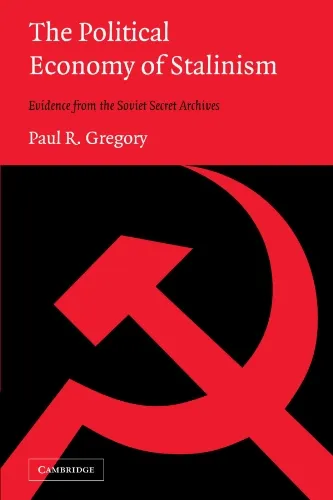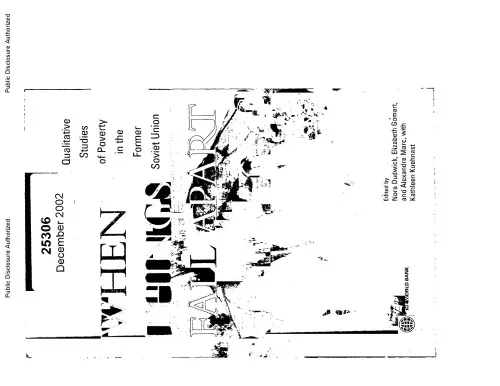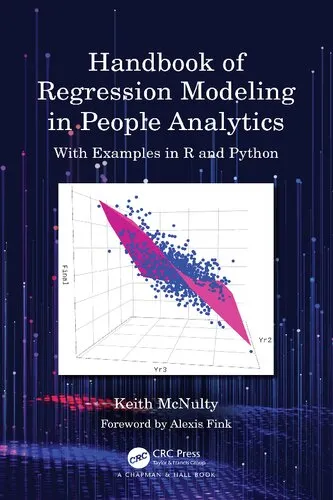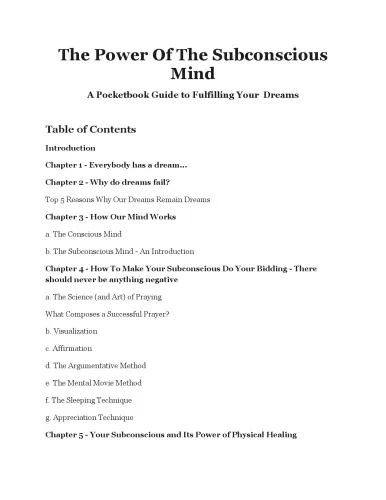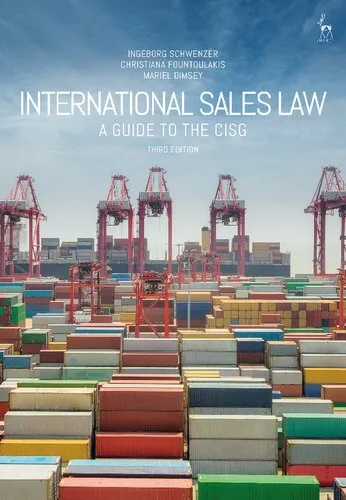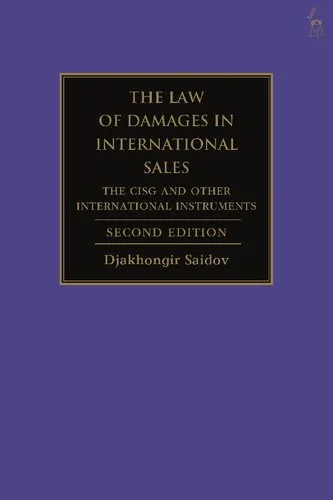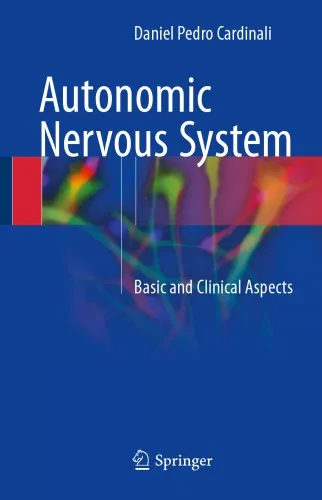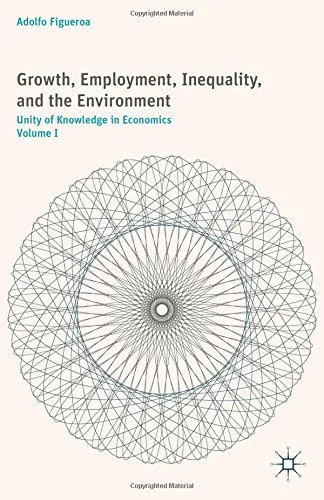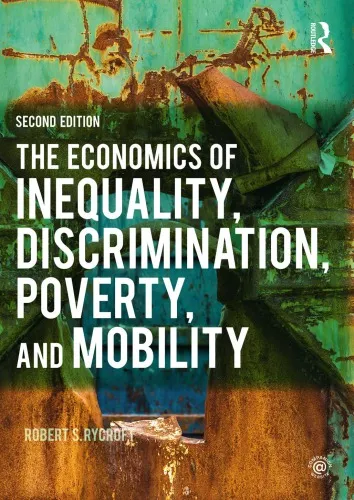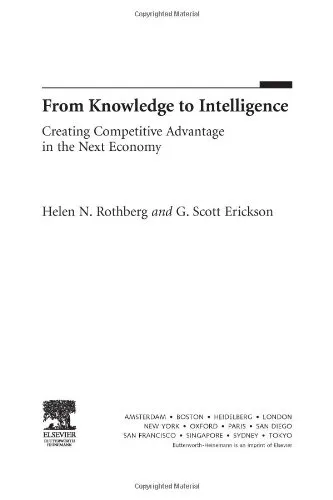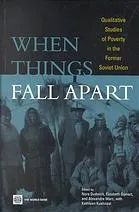The political economy of Stalinism: evidence from the Soviet secret archives
4.0
بر اساس نظر کاربران

شما میتونید سوالاتتون در باره کتاب رو از هوش مصنوعیش بعد از ورود بپرسید
هر دانلود یا پرسش از هوش مصنوعی 2 امتیاز لازم دارد، برای بدست آوردن امتیاز رایگان، به صفحه ی راهنمای امتیازات سر بزنید و یک سری کار ارزشمند انجام بدینکتاب های مرتبط:
معرفی کتاب
کتاب «The Political Economy of Stalinism: Evidence from the Soviet Secret Archives» نوشته پل آر. گریگوری تحولی عظیم در تحلیل سیستمهای اقتصادی و سیاسی اتحاد شوروی و تحلیل دوران استالین به شمار میآید. این کتاب با استفاده از آرشیوهای مخفی شوروی، درک جدیدی را از اقتصاد سیاسی استالینیسم ارائه میدهد.
خلاصهای جامع از کتاب
کتاب به بررسی دقیق سیاستهای استالینیستی و تأثیرات آن بر اقتصاد شوروی میپردازد. پل گریگوری با استفاده از اسناد مخفی به تحلیل ساختارهای پیچیده بوروکراتیک و نحوه تأمین منابع در دوره استالینیسم میپردازد. او نشان میدهد چطور تصمیمگیریهای متمرکز و ضعفهای سازمانی باعث ایجاد چالشهای اقتصادی و اجتماعی در شوروی شد.
نکات کلیدی
- درک عمیق از چگونگی عملکرد بوروکراسی شوروی در زمان استالین.
- تحلیل مستقیم از اسناد آرشیوی که برای سالها مخفی باقی مانده بود.
- ارائه الگویی برای درک بهتر تصمیمگیریهای اقتصادی در سیستمهای متمرکز.
نقلقولهای معروف
"استالینیسم نه تنها یک سیستم سیاسی بود بلکه یک سیستم اقتصادی کامل بود که تمام زندگی اجتماعی و اقتصادی را تحت تأثیر قرار داد."
چرا این کتاب مهم است
این کتاب یکی از بهترین منابع برای مطالعه تخصصی تاریخ اقتصادی و سیاسی شوروی در زمان استالین است. بررسیهای پل گریگوری به محققان و دانشجویان کمک میکند درکی عمیقتر از چگونگی تعاملات بوروکراتیک و تأثیر آن بر جوامع امروزی داشته باشند. اهمیت این کتاب در ارائه شواهد مستقیم و کاملاً مستند از آرشیوهایی است که تا زمان نگارش کتاب به مقدار زیادی ناشناخته بودند.
Understanding the inner workings of the Soviet Union during Stalin's era is pivotal for comprehending the broader dynamics of 20th-century political history and economics. "The Political Economy of Stalinism: Evidence from the Soviet Secret Archives" by Paul R. Gregory is an illuminating book that delves into this enigmatic period, unraveling the complexities of Stalinist governance through meticulous study of secret archives.
Detailed Summary of the Book
Paul R. Gregory's "The Political Economy of Stalinism" presents a profound exploration of Joseph Stalin's Soviet Union, particularly focusing on its economic logistics, governance, and the socio-political fabric that held it all together. Utilizing declassified Soviet archives, the book offers a rare glimpse into a tightly controlled system, characterized by its highly centralized planning, command economy, and brutal enforcement mechanisms.
Throughout the book, Gregory outlines how economic decisions during Stalin's reign were less about efficiency and more about consolidating power and ensuring ideological adherence. The author reveals the intricate balance between industry leaders and political elites, who were often in a constant power struggle to maintain control and favor from Stalin himself. The book traces the decision-making processes that led to pivotal economic policies, and uses real archival evidence to showcase how these processes were dictated by often arbitrary and dangerously whimsical rules.
The book also explores how Stalin's economic model ultimately laid the groundwork for both the strengths and weaknesses of the Soviet Union well into its later years, significantly affecting global geopolitics.
Key Takeaways
- The book highlights the paramount role of central planning in Stalin's economic regime, illustrating how it was used as a tool of control rather than efficiency.
- Gregory sheds light on the internal conflicts within the Soviet leadership, demonstrating how economic plans were often subverted by personal ambitions and ideological zealotry.
- The book discusses the harsh realities of Soviet economic policies, including forced collectivization, purges, and the Gulag labor camps, which were integral to maintaining the Stalinist state.
- It reveals the Stalinist obsession with industrial output numbers, often at the expense of quality of life and sustainability.
- Finally, Gregory elaborates on how the Stalin era's economic measures influenced future Soviet policies, leading up to the eventual dissolution of the Soviet Union.
Famous Quotes from the Book
"Stalin's economic policies were less a miracle of planning and more a testament to the coercive force of the state."
"The personal feuds and ideological battles within the Soviet elite were waged not just with words, but often with devastating consequences for the Soviet citizenry."
Why This Book Matters
"The Political Economy of Stalinism" is significant because it provides an in-depth analysis of how totalitarian regimes operate economically, shedding light on the broader implications for similar systems worldwide. The book is pivotal for scholars of history, economics, and political science, as it not only details Stalin's unmistakable mark on Soviet history but also serves as a cautionary tale about the dangers of authoritarian governance.
By accessing and interpreting exclusive archival documents, Gregory contributes to a more nuanced understanding of a period that has often been shrouded in secrecy and myth. His work challenges previous interpretations of the Soviet economy and provokes a rethinking of the legacy of Stalinist policies.
For anyone interested in understanding the intricate workings of high-level Soviet economics and the political machinations that shaped the lives of millions, Gregory’s book is an invaluable resource that continues to resonate with readers today.
دانلود رایگان مستقیم
شما میتونید سوالاتتون در باره کتاب رو از هوش مصنوعیش بعد از ورود بپرسید
دسترسی به کتابها از طریق پلتفرمهای قانونی و کتابخانههای عمومی نه تنها از حقوق نویسندگان و ناشران حمایت میکند، بلکه به پایداری فرهنگ کتابخوانی نیز کمک میرساند. پیش از دانلود، لحظهای به بررسی این گزینهها فکر کنید.
این کتاب رو در پلتفرم های دیگه ببینید
WorldCat به شما کمک میکنه تا کتاب ها رو در کتابخانه های سراسر دنیا پیدا کنید
امتیازها، نظرات تخصصی و صحبت ها درباره کتاب را در Goodreads ببینید
کتابهای کمیاب یا دست دوم را در AbeBooks پیدا کنید و بخرید
1494
بازدید4.0
امتیاز0
نظر98%
رضایتنظرات:
4.0
بر اساس 0 نظر کاربران
Questions & Answers
Ask questions about this book or help others by answering
No questions yet. Be the first to ask!
